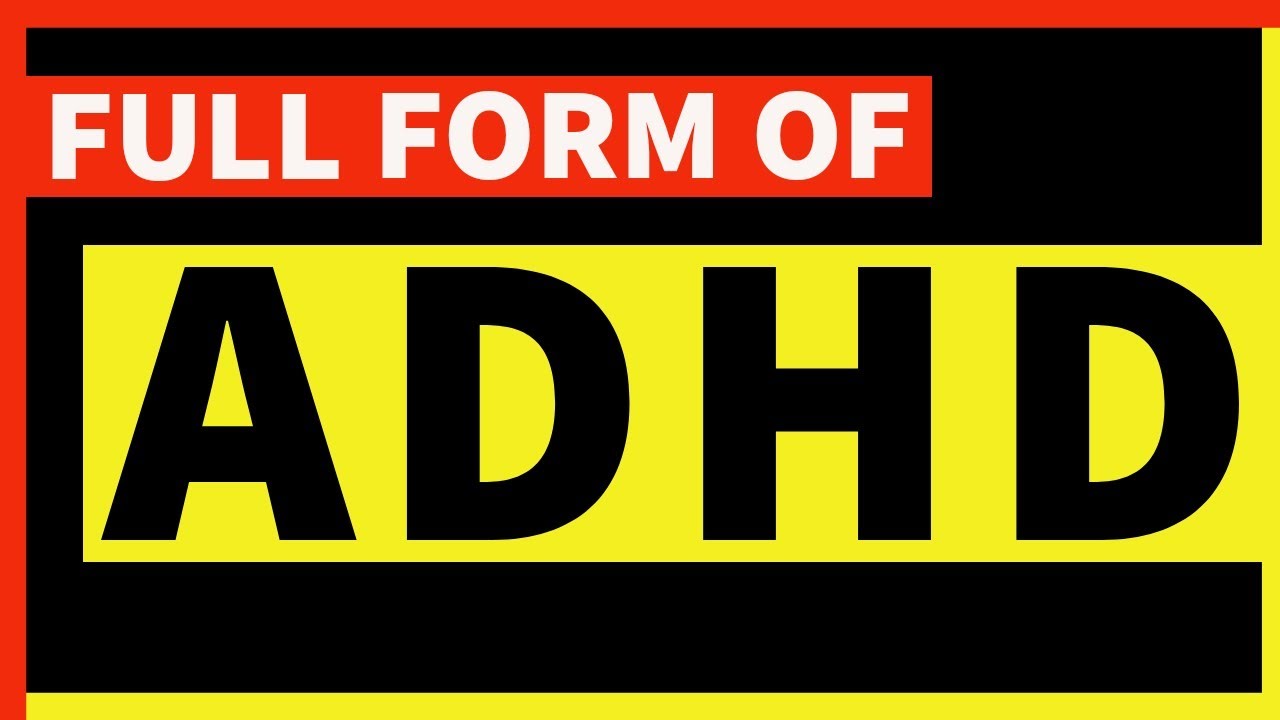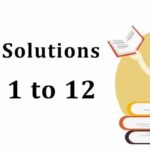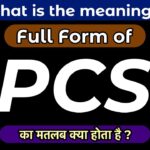ADHD Full Form: Attention Deficit Hyperactivity Disorder
ADHD Full Form is Attention Deficit Hyperactivity Disorder. It is a common neurodevelopmental disorder that affects brain activity, making it difficult for a person to concentrate, control impulsive behaviors, or remain still for long periods. Children and adults with ADHD often appear restless, overly energetic, or easily distracted.
Although ADHD cannot be permanently cured, its symptoms can be managed with therapies, counseling, and in some cases, medication. With the right support, many children see improvements as they grow older.
✅ Diagnosis of ADHD
For an ADHD diagnosis, symptoms must:
- Appear before age 13
- Last at least 6–7 months
- Cause challenges in two or more environments (e.g., school, home, social settings)
Process of Diagnosis:
- Health Check-Up – A doctor will examine hearing, vision, and overall health to rule out other causes.
- Referral to Specialist – The child may be referred to a psychologist or psychiatrist.
- Observation & Reports – Parents are often asked to record their child’s daily activities, noting when unusual or disruptive behaviors occur.
A diagnosis is likely if the child:
- Struggles to pay attention in school or during homework
- Is easily distracted
- Shows impulsive or reckless behaviors
- Experiences mood swings, anxiety, or depression
✅ Types of ADHD
ADHD is categorized into three main types:
- Combined Type – Symptoms of inattention, hyperactivity, and impulsiveness are all present.
- Hyperactive-Impulsive Type – The child is restless and impulsive but not necessarily inattentive.
- Inattentive Type – The child struggles with focus and gets distracted easily, but shows little hyperactivity.
✅ Causes of ADHD
The exact cause of ADHD is not known, but research suggests:
- Genetics may play a strong role.
- Brain chemistry: Lower levels of dopamine, a neurotransmitter linked to attention and reward, are often found in children with ADHD.
- It is considered a brain-based disorder rather than a behavioral choice.
✅ Impact on Daily Life
Living with ADHD can be challenging:
- Children often struggle with organization, following instructions, and social interactions.
- Sleep disturbances are common in individuals with hyperactivity.
- Adults may face relationship issues, workplace difficulties, and social discomfort.
ADHD impacts not only academic performance but also everyday routines, such as getting ready for school, shopping, or managing household tasks.
✅ Treatment of ADHD
ADHD treatment typically combines behavioral therapy, parental support, and sometimes medication.
1. Behavioral Interventions
- Counseling sessions with a psychologist
- Parenting guidance and behavior training
2. Medications (Psychostimulants)
These help balance brain chemicals that improve focus and reduce impulsivity. Common stimulants include:
- Methylphenidate
- Dextroamphetamine
- Ephedrine
⚠️ Note: The inclusion of cocaine in some lists is outdated and medically inappropriate. Modern treatment does not use cocaine.
3. Possible Side Effects of Medications
- Headaches
- Loss of appetite
- Sleep disturbances
- Rebound effect (symptoms return as medication wears off)
Despite side effects, psychostimulants remain one of the most effective treatments when carefully prescribed and monitored.
❓ FAQs on ADHD Full Form
1. Is ADHD a lifelong condition?
Yes. ADHD is typically a lifelong condition. While symptoms may improve with age, adults often continue to face difficulties in managing focus, work, and social responsibilities.
2. Can ADHD be left untreated?
If left unmanaged, ADHD can cause significant challenges in academic, professional, and social life. While it has no permanent cure, therapy, counseling, and medication can help individuals lead fulfilling lives.
📘 Vocabulary Worksheet
Name: ___________________ Date: _____________
Topic: Vocabulary Practice
Part A – Match the Words with Their Meanings
Match each word with the correct meaning. Write the correct number in the blank.
- Abundant
- Reluctant
- Swift
- Generous
- Cautious
Meanings:
- Moving very quickly
- Careful to avoid danger
- A large quantity of something
- Willing to share or give freely
- Hesitant or unwilling
Part B – Fill in the Blanks
Use the words below to complete the sentences. Each word is used once.
Words: curious, fragile, enormous, ancient, joyful
- The vase is very __________, so handle it carefully.
- The child was __________ about how the machine worked.
- The elephant is an __________ animal.
- The pyramids of Egypt are __________ structures.
- She felt __________ when she heard the good news.
Part C – Synonyms and Antonyms
Write one synonym and one antonym for each word.
- Brave → Synonym: __________ / Antonym: __________
- Honest → Synonym: __________ / Antonym: __________
- Bright → Synonym: __________ / Antonym: __________
Part D – Sentence Creation
Use each of the following words in your own sentence.
- Harmony
- Disguise
- Victory
Answer Key
Part A: 1-c, 2-e, 3-a, 4-d, 5-b
Part B: 1-fragile, 2-curious, 3-enormous, 4-ancient, 5-joyful
Part C (sample answers):
- Brave → Synonym: courageous / Antonym: cowardly
- Honest → Synonym: truthful / Antonym: dishonest
- Bright → Synonym: shining / Antonym: dull
🧠 Final Thoughts
ADHD is not just about being distracted or restless—it is a medical condition linked to brain development. With early diagnosis, parental support, therapy, and the right treatment plan, children and adults with ADHD can thrive academically, socially, and emotionally.
AFCAT Full Form
AFCAT full form is the Air Force Common Admission Test. It is a national-level entrance exam conducted by the Indian Air Force (IAF) to select candidates for various posts such as Flying Branch, Ground Duty (Technical), and Ground Duty (Non-Technical). The AFCAT exam is held twice a year and is open to both male and female candidates who meet the eligibility criteria. Clearing the AFCAT allows aspirants to join the prestigious Indian Air Force, serving the nation with honor. The exam tests candidates on general knowledge, reasoning, numerical ability, and military aptitude.





